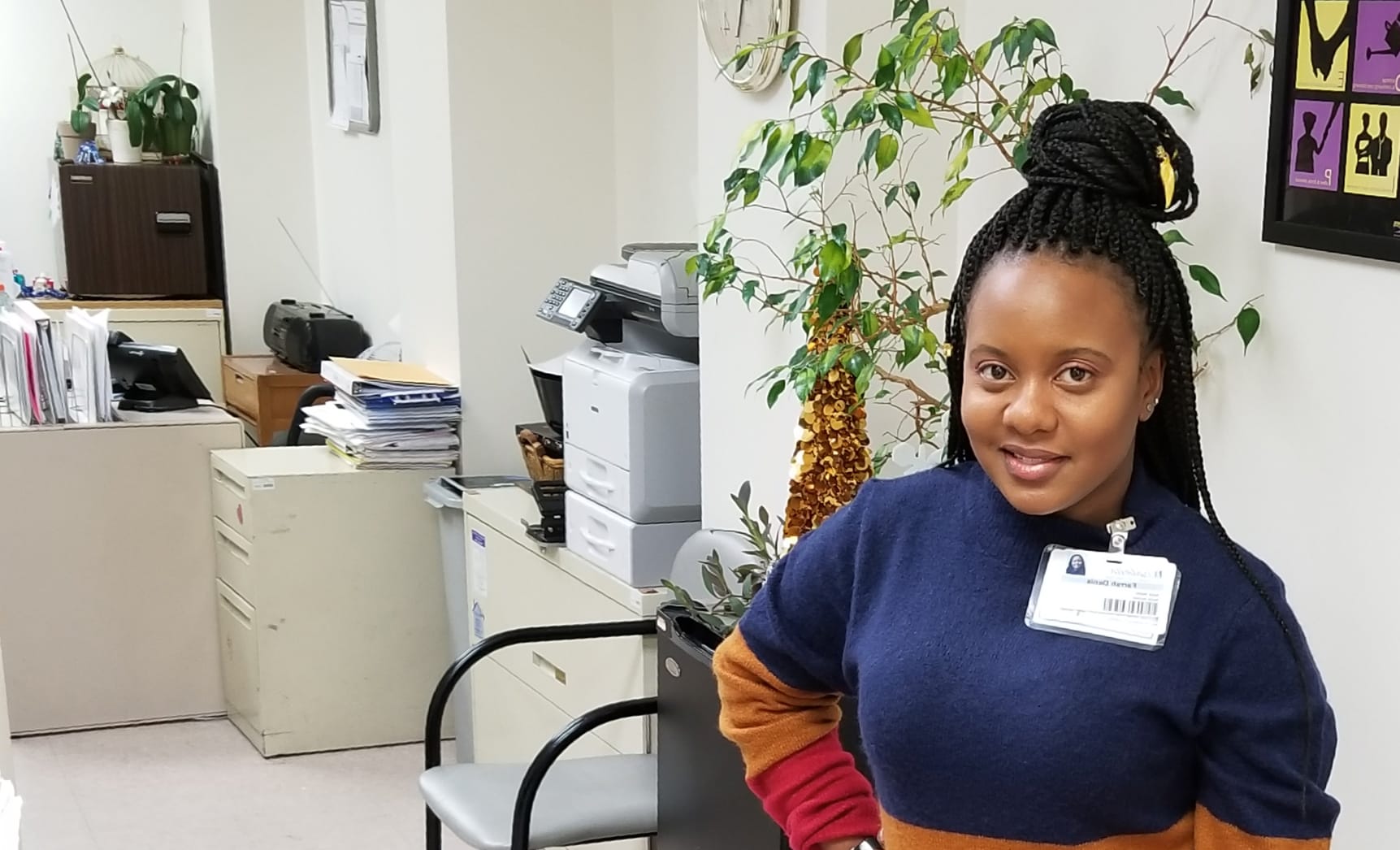News
“I Try to Be There with Them”
Farrah Denis Delivers Comfort to the Elderly

For the residents of the 3rd and 4th floor of the Isabella Geriatric Center in Manhattan, medical social worker Farrah Denis fills many roles: a case supervisor, an intake coordinator, and perhaps most importantly, a friend.
“In my teenage years, I was always interviewing older people,” recalled Denis, an alumnus of Touro’s Graduate School of Social Work. “I wanted to learn from their wisdom and experiences. I also thought it was my duty to give back.” Her own relationship with her grandmother, who died in 2014, she said “taught me that.”
“A lot of the residents have dementia as well, so I just try to be there with them,” said Denis. “I sit next to them and hold their hands.”
Every day, Denis makes the almost-two-hour commute to the Bronx from her home in Brooklyn. As a medical social worker for two units, she supervises 90 residents. Her responsibilities include working with the nurses to ensure that residents receive the proper medical care; helping residents prepare for their next step, be it home, a hospital facility or hospice; conducting intake interviews and one-on-one interviews with residents; crisis intervention and allowing patients to maintain their autonomy while receiving the best possible care.
While she earned her undergraduate degree, Denis worked at a group home run by United Cerebral Palsy of New York City (the organization changed its name to ADAPT Community Network in 2017). Denis originally planned to work in a managerial capacity in a hospital, but her daily work and her relationship with a social worker inside the organization led her to consider the profession.
“Simply working with the disabled sparked my interest in becoming an advocate for those who can’t advocate for themselves,” she said. “Seeing what our social worker was able to do also had an impact on me.”
After graduation, she attended another school for a master’s degree in social work, but switched to Touro’s Graduate School of Social Work.
“I wanted smaller classrooms and to have a relationship with my professors,” stated Denis. “I had an amazing time. I learned a lot from people who were very knowledgeable and my professors were always there to talk to for guidance.”
Denis’s favorite classes were Human Behavior and Power, Privilege and Oppression. “Human Behavior allowed us to learn the clinical skills of psychiatric diagnosis and how it applied to the field of social work along with appropriate interventions,” said Denis. “Our Power, Privilege and Oppression class allowed us to dissect what was going on in the world.”
During her time at GSSW, she was especially close with Dr. Annecy Baez and Dr. Shakira Kennedy. “There’s realness in the experiences they carry,” she said. “But they’re also very approachable and never turn you down. They represent Touro well.”
For her second-year internship, Denis worked at a nursing home in Brooklyn. The work gave her a sense of how effective she could be with the elderly population. At the end of her internship, her supervisor recommended her to her current employer and she began working a week after she graduated in 2018.
“I’ve had great mentors,” said Denis. “My last internship was really similar to my current work so while I was nervous, I was also prepared.”
Despite her long commute, Denis said she looks forward to her work every day.
“Our residents are funny and smart,” said Denis. “Even when there are smaller issues, I have a great team and that helps.”
“I try to give myself over to the residents, especially those that don’t have family or has a family that doesn’t visit often,” continued Denis. “I go out of my way so that they won’t feel different, whether it’s finding out what they’re interested in or what activities they’d like to do inside of the center or outside of it.”
One piece of advice she uses on a daily basis came from her professor at GSSW, Dr. Steven Krantz.
“He always said to run towards the problem,” said Denis. “If I find that I’m facing a problem that causes me to be weary or I want to put it aside, I think of what Dr. Krantz said and try to tackle it first.”
As for advice for future social workers, Denis mentioned a key tenet of social work.
“You need to know how to advocate for someone else and if you can’t advocate for yourself you won’t be able to advocate for anyone else.”

